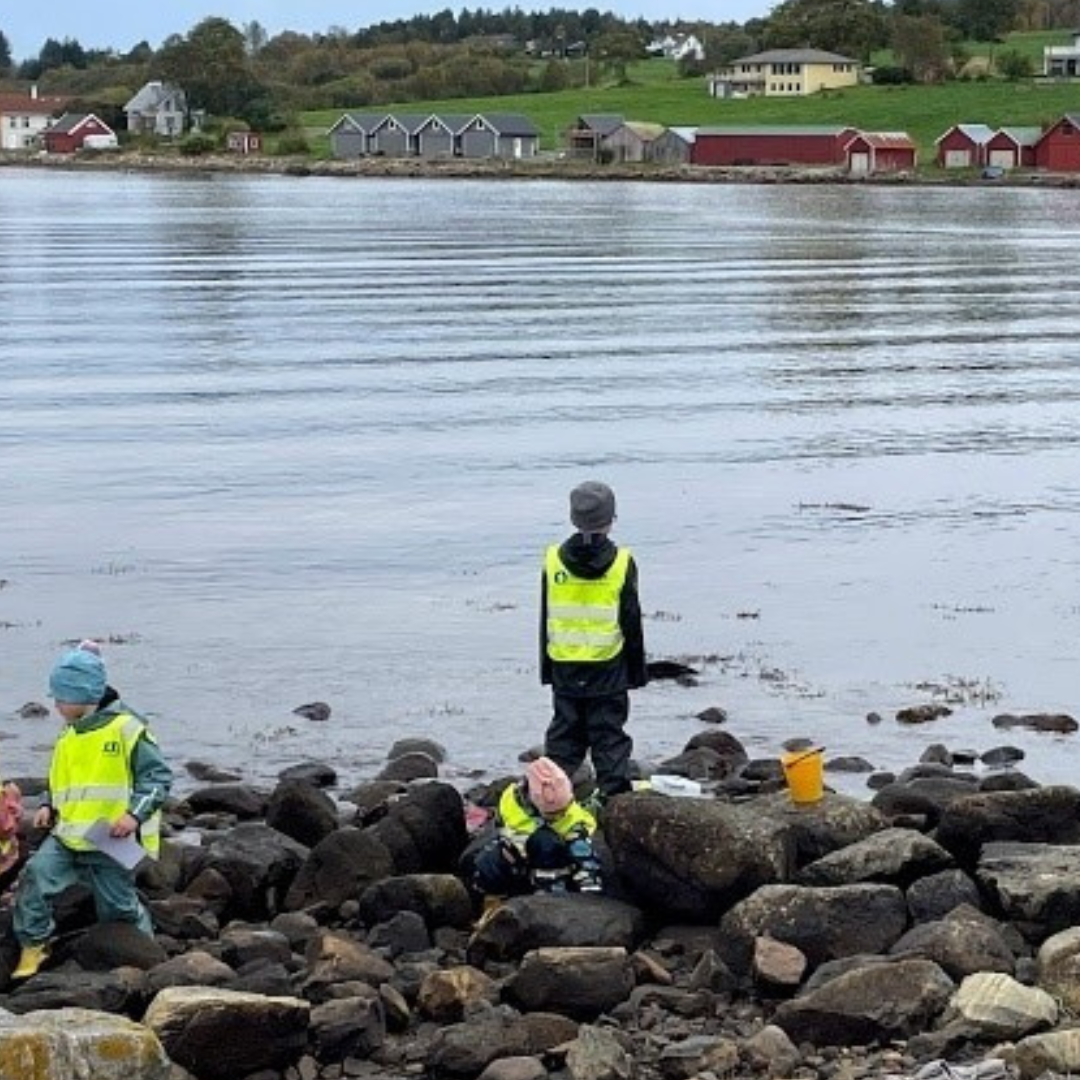From October 3 to 7, we went on a hunt with new experiences and insights offered by the Norwegian education system and their experiences. We visited 4 schools and one organization responsible for outdoor activities in the Møre and Romsdal County – 3 primary schools and 1 secondary school. The Norwegian education system is a little different from ours – from 1th till the 7th grade is lower primary school, and the 8th, 9th and 10th grade are upper primary school, followed by three or four years of high school. Most of the elementary schools we visited have mainly less students as our schools. The essential difference is that until the 4th grade they have to do outdoor lessons at least once a week. In the later years of education, however, this is highly recommended.
Teachers and students showed us how classes are conducted on such days. These are primarily cross-curricular tasks that students solve during the game or during outdoor movement. Example: students around the school or of the workspace they are looking for slips with tasks that they have to solve or answer them and return to the teacher with the solution. And so until they find and solve all the tasks. We also found the day with the 1st and 2nd graders very interesting, who were looking for certain organisms (shells, crabs, snails, algae, starfish…) on the coast of the fjord. They got photos of organisms, a container and let’s go to the sea or by the sea… They found everything possible. And so much for information – it was 10 degrees Celsius outside. There wasn’t a child who complained about the cold, the wetness, the light dust… Everyone enjoyed the outdoors very much.
During the visit, we realized above all that it is often only a good idea that enables a faster transition to outdoor lessons. It is true that in Slovenia we are limited by norms and city schools are also limited by space, but many things can be done just like that. Unfortunately we didn’t see how the outdoor lessons would take place at the upper primary school. There, the contents and goals are also more demanding.
Sonja Grilc, OŠ Franceta Prešerna Kranj


